Alabama Learning Exchange
Alex: Analyzing Characters in 12 Angry Men
Re-telling a story from the points of view of its various characters is a powerful way to review the events of a story, show how authors use characterization to reveal characters' personalities, and encourage students to view stories...
Other
Authors and Creators Frederic Brown
This site, part of the Thrilling Detective Website, a personal site devoted to detective fiction, gives an overview of Frederic Brown's detective fiction from the point of view of a fan. The site includes an extensive list of works by...
Other
Robert J. Sawyer: Writing Workshops
This site features a list of columns written by Robert Sawyer. They include: Great Beginnings, Point of View, Constructing Characters, Show, Don't Tell, Description, Research, and more. W.9-10.3, 3a, 3b, 3c, 3e Narratives, W.11-12.3, 3a,...
ReadWriteThink
Read Write Think: Review Redux: Literary Criticism Through Reception Moments
Literature takes on a life of its own as young scholars take a hands-on approach to exploring A Raisin in the Sun for cultural and historical context.
E Reading Worksheets
E Reading Worksheets: Tone Worksheets and Lessons
This learning module provides remediation and extra practice with identifying an author's tone. Reinforcement for understanding author's tone is provided through the five different worksheets and a mini-lesson. CCSS.ELA-Literacy.CCRA.R.4
Caro Clarke
The Art of the Unspoken: Saying More by Describing Less
This is the thirteenth article in a series that was developed to help the new novel author. This article focuses on how good descriptions aren't necessarily connected with a lot of words, good descriptions are clean and to the point.
Caro Clarke
Not Stopping the Reader: How to Avoid Stumbling Blocks
This is the eighth article in a series that focuses on helping the new novel author. This article looks at how the author can avoid creating stumbling blocks that disrupt the flow of the novel.
Caro Clarke
Explaining Too Much: Why More Is Less
This is the eleventh article in a series that is designed to help the new novel author. This article focuses on how to eliminate needless information in your novel. The key is to not explain too much about the action.
Scholastic
Scholastic: Natalie Babbitt's Biography
General biography of the author, written from her point of view. Includes a list of Babbitt's published works, and a photograph of the author, plus links to interview transcripts.
National Endowment for the Humanities
Neh: Edsit Ement: Lesson 4: Faulkner's the Sound and the Fury
In this lesson plan, learners will consider Lesson 4: Faulkner's The Sound and the Fury: Narration, Voice, and the Compson Family's New System. Worksheets and other supporting materials can be found under the Resources tab....
Department of Defense
Do Dea: In the Beginning
This expansive self-guided unit hits on many objectives such as analyzing literature for author's purpose, figuring out the main idea/theme, understanding historical criticism, comparing and contrasting works from major historical...
National Endowment for the Humanities
Neh: Edsit Ement: Stephen Crane's "The Open Boat"
In this lesson, students will examine the relationship of man and nature as portrayed in "The Open Boat," based on Crane's suffering from a shipwreck on The Commodore in which he spent thirty hours on a small boat at sea before being...
Texas Education Agency
Texas Gateway: Evaluate Tone in Various Media for Different Audiences & Purposes
This lesson will help you evaluate changes in formality and tone within printed texts written for specific audiences and purposes. It focuses on writing produced during the Great Depression.
Sophia Learning
Sophia: Harnessing "The Power of a Word"
For this PDF lesson plan, students will analyze the text "The Power of a Word" by Leonard Pitts, Jr. to identify an author's argument and how he deals with the counterargument. Students will extend the argument by agreeing or disagreeing...
Other
Poe Decoder: The Masque of the Red Death
This site contains links to a summary of "The Masque of the Red Death" and essays about its setting, characters, point of view, style, and theme.
ClassFlow
Class Flow: Helen Keller: The Story of My Life
[Free Registration/Login Required] This flipchart uses Helen Keller: The Story of My Life from the 2003 edition of The Language of Literature. Students will discuss the story as well as learn concepts such as point of view, conflict,...
Texas Education Agency
Texas Gateway: Analyze Shifts in Perspective in Informational & Persuasive Text
[Accessible by TX Educators. Free Registration/Login Required] In this lesson, students will read informational texts and identify varying perspectives in different arguments on the same topic. You will also analyze the reasoning and the...
Khan Academy
Khan Academy: The Sat Reading Test: Rhetoric
Details about Rhetoric on the SAT Reading Test. One definition of the word rhetoric is "the study of writing or speaking." Rhetoric questions on the Reading Test assess how well you understand the choices that authors make as they...
Victorian Web
The Victorian Web: Charlotte Bronte: Jane Eyre
A portal to biographical information and essays related to Charlotte Bronte (1816-1855) and her novel "Jane Eyre," including information about social and political history, characterization, themes, genre, setting, imagery, and more.
Curated OER
Mc Graw Hill: Analyze Language Choices
Learn about figurative language and how to determine the figurative, denotative, and connotative meanings of words.
Florida Center for Reading Research
Florida Center for Reading Research: Text Analysis: What's the Purpose? [Pdf]
A lesson plan in which students read short texts and sort them according to purpose: persuade, inform, entertain, and explain. Materials are included. CCSS.ELA-Literacy.CCRA.R.6
Curated OER
Mc Graw Hill: Part 2 Reading: Informational Text: Evaluate Arguments and Claims
This article will help you evaluate informational text to determine whether an author's argument is supported by evidence or not. Click on Model to see a model with explanations and then click on Practice.
Other
Object of History: Other Authors of the Declaration of Independence
View a photo of the committee that discussed the important points to be covered in the Declaration of Independence.
University of Victoria (Canada)
The U Vic Writer's Guide: Literary Term: Stream of Consciousness
A good definition of stream of consciousness. Includes links to related topics and references to literature and authors who utilize stream of consciousness in their writing.
Other popular searches
- Author's Point of View Media
- Authors Point of View Media
- Authors View Point
- Author's View Point
- Author's "Point of View" Media



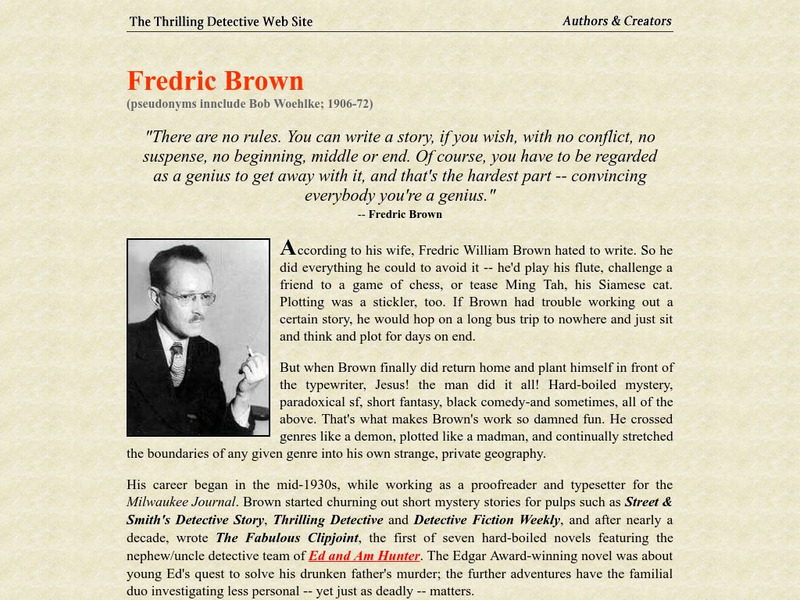
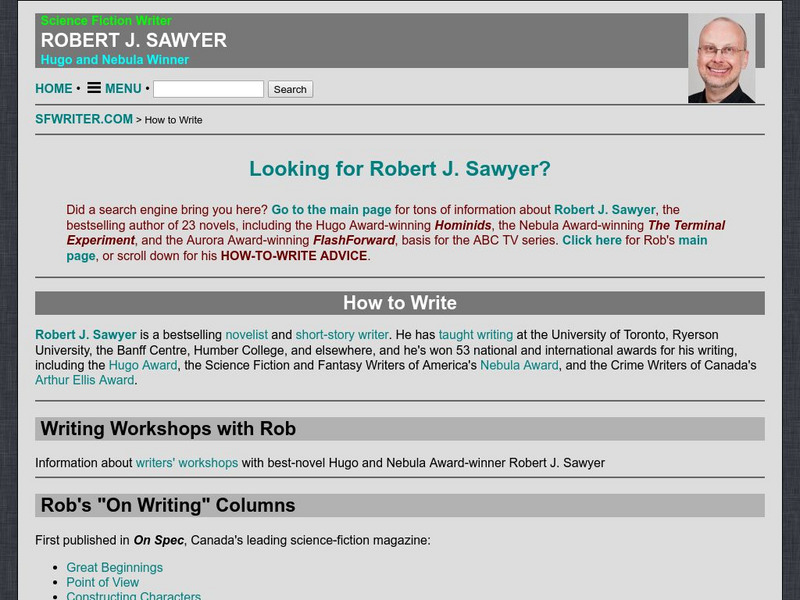


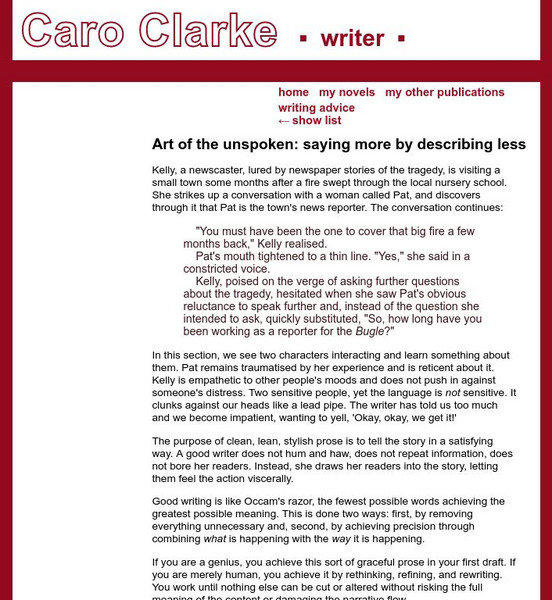






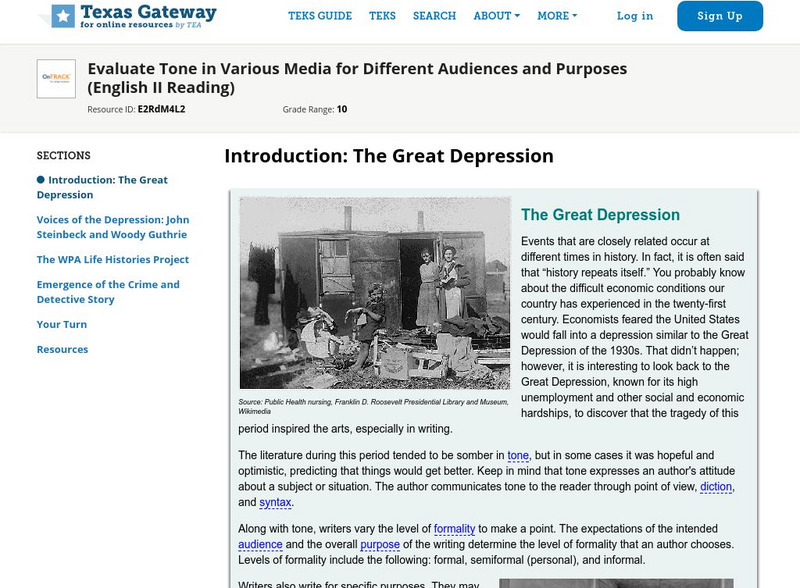
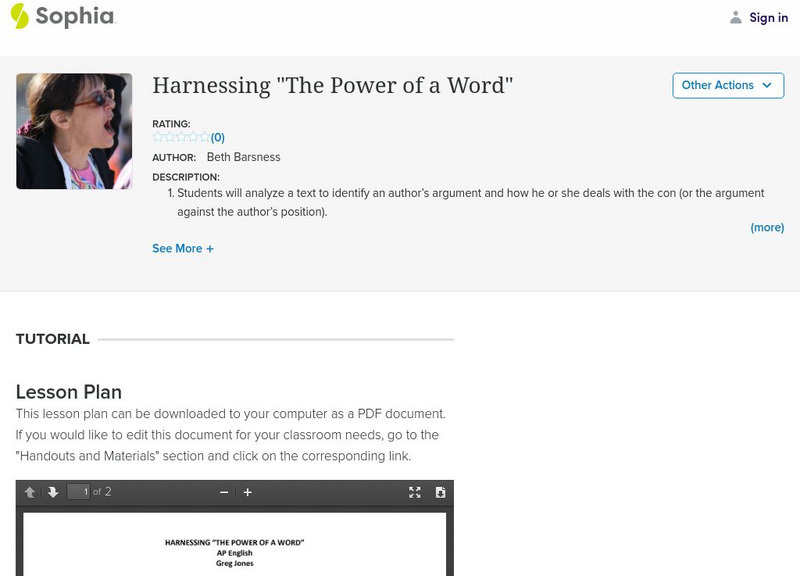


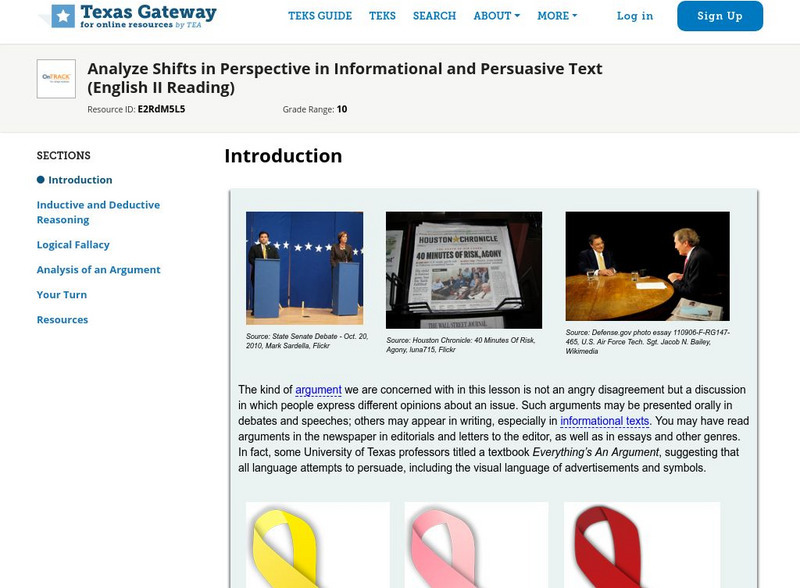

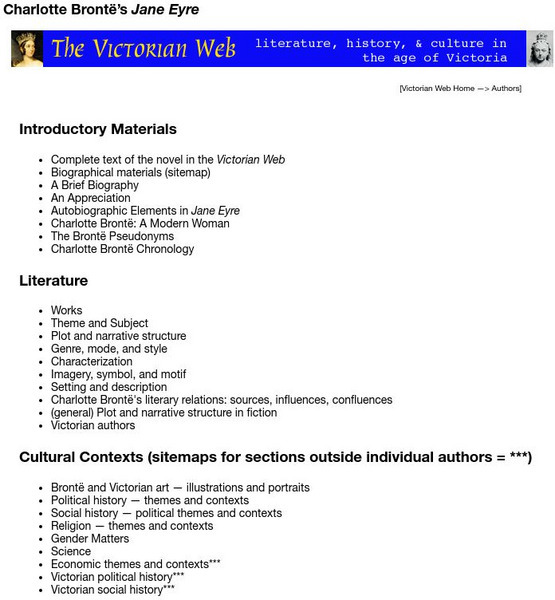
![Florida Center for Reading Research: Text Analysis: What's the Purpose? [Pdf] Lesson Plan Florida Center for Reading Research: Text Analysis: What's the Purpose? [Pdf] Lesson Plan](https://content.lessonplanet.com/knovation/original/509089-64868ece89f3525d24d67087419c1262.jpg?1661786990)

